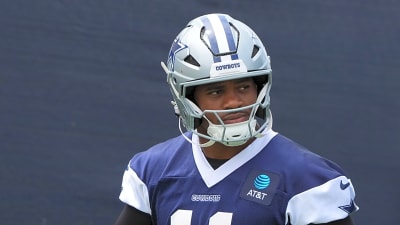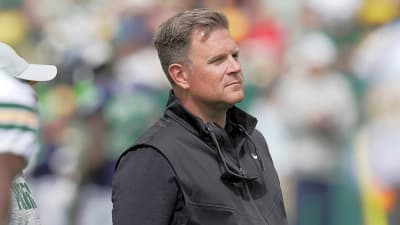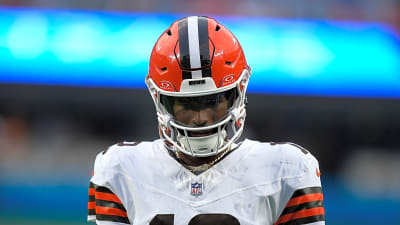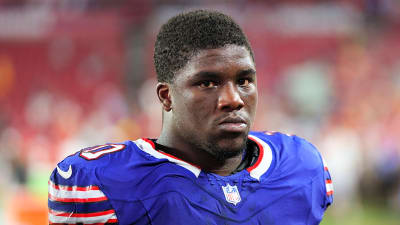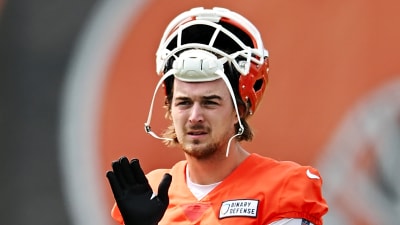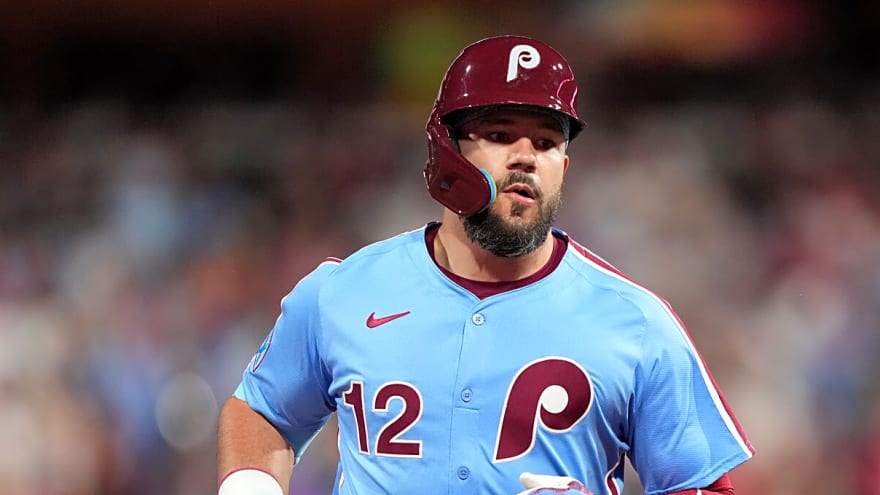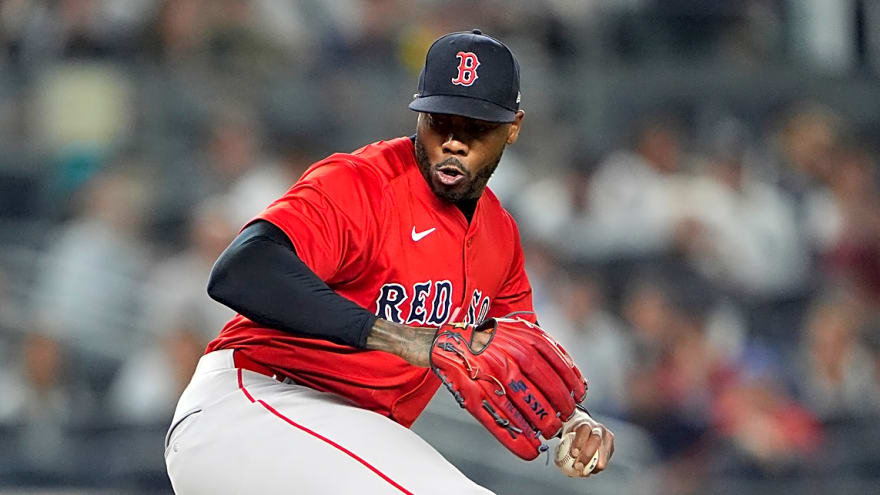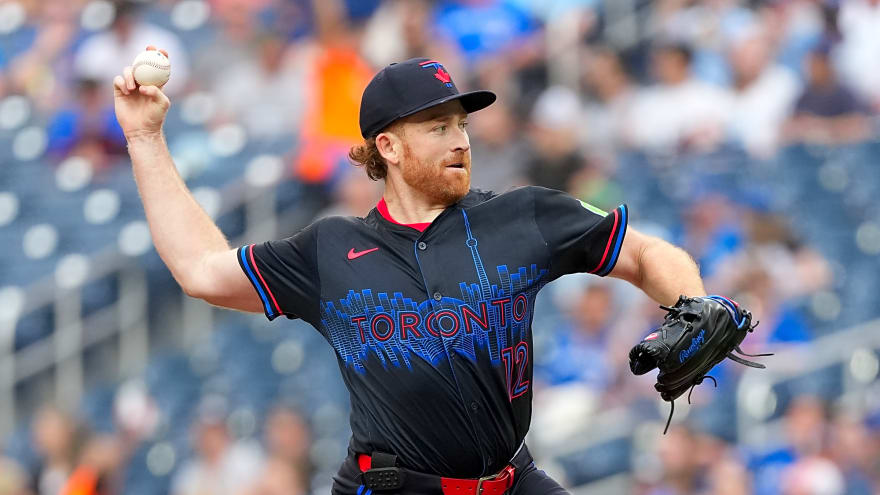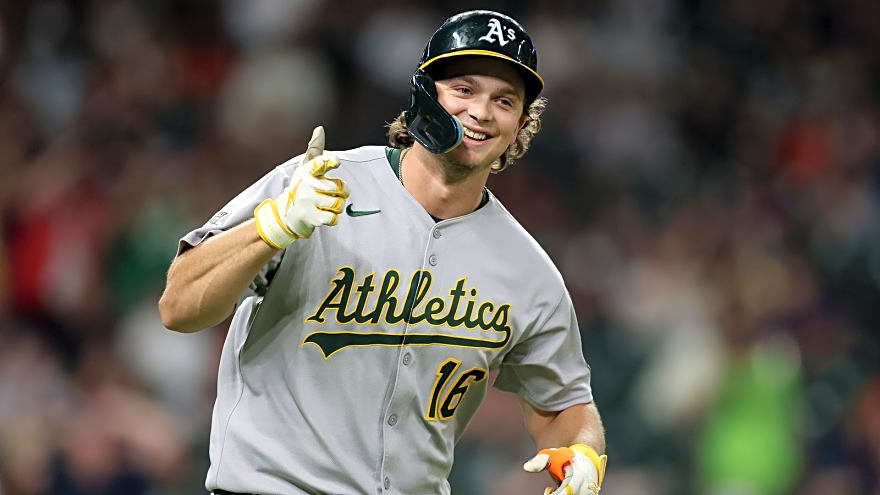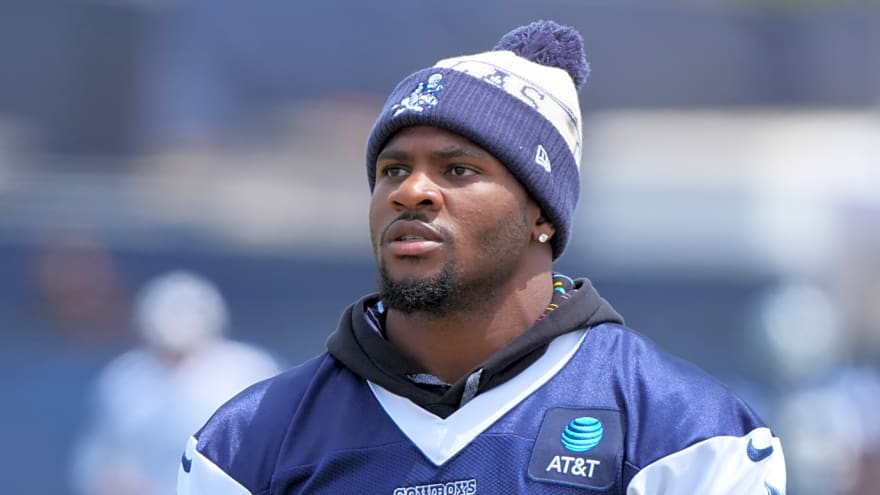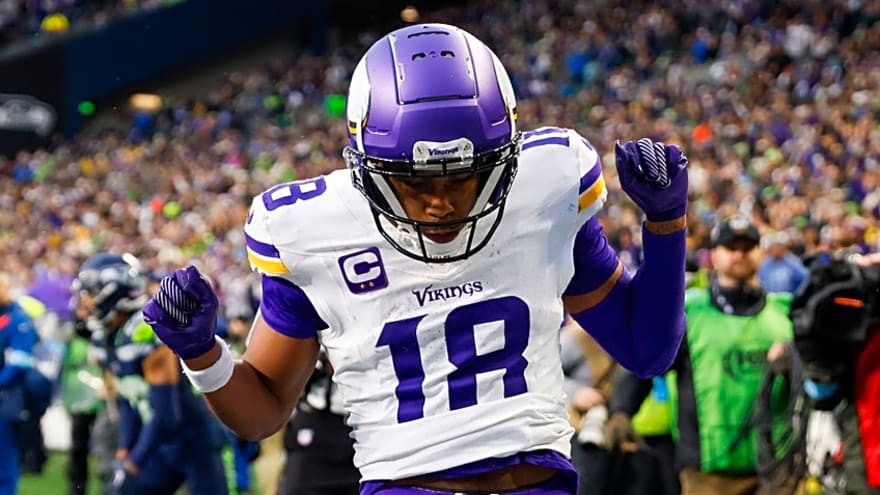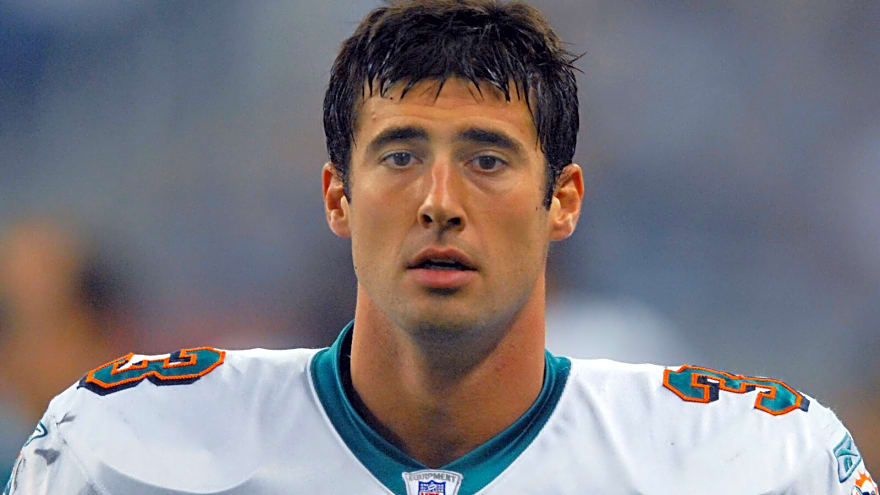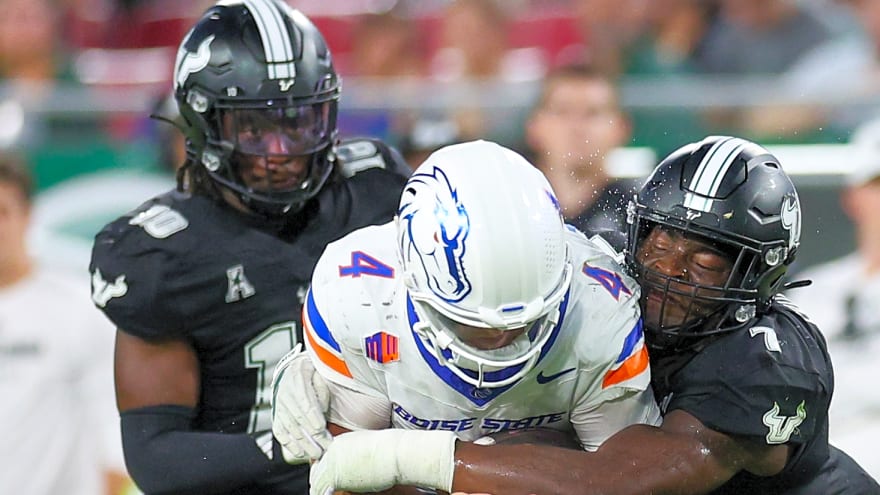
The New York Mets fell to the New York Yankees on Sunday evening, dropping the Subway Series' rubber match. Despite entering the eighth inning tied 2-2, the Mets let the game get away, surrendering a six-run frame.
It was an error by Mets first baseman Pete Alonso that opened the floodgates for the Yankees. With one out and runners on second and third, Alonso fielded a grounder from Jorbit Vivas and threw home. A good throw would have given the Mets a chance to get Jasson Domínguez at the plate, but Alonso's throw sailed, giving the Yankees a 3-2 lead.
Pete Alonso with a man downfield pic.twitter.com/6Jx63B4780
— Pardon My Take (@PardonMyTake) May 19, 2025
Speaking with reporters after the game, Alonso assigned the blame for this loss solely to himself.
"I just made an awful throw," he said (via SNY). "That whole inning, this game, it's on me. After that throw, the momentum got out of hand."
Alonso added, "I think today just came down to one play, and that's me messing that one up. If we get out of that inning, I feel like we're gonna give ourselves a good chance to win that ballgame."
"I think today just came down to one play, and that's me messing that one up. If we get out of that inning, I feel like we're gonna give ourselves a good chance to win that ballgame."
— SNY (@SNYtv) May 19, 2025
- Pete Alonso pic.twitter.com/pZTkyWvavJ
Despite a recent slump, Alonso has been an early-season National League MVP candidate. The right-handed slugger owns a .967 OPS that ranks fourth in MLB, trailing only Aaron Judge, Freddie Freeman and Shohei Ohtani.
This loss dropped the Mets to 29-18, shrinking their lead atop the National League East to just a half-game over the Philadelphia Phillies. For Alonso, the error was just his second on the season.
More must-reads:
- Aroldis Chapman is quietly putting together a historic season
- Former MLB All-Star announces he is running for U.S. Congress
- The 'Active 20-home run MLB seasons' quiz
Breaking News
Trending News
TODAY'S BEST
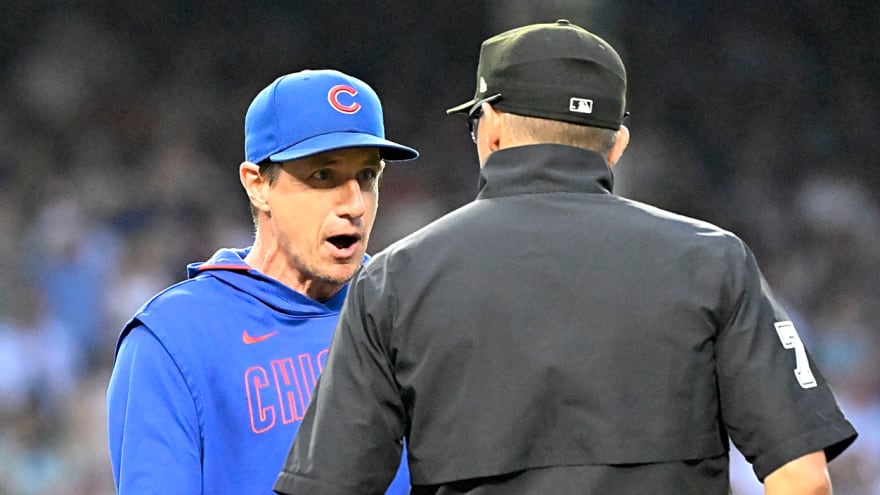
Cubs' Craig Counsell earns most tame ejection of MLB season
Chicago Cubs manager Craig Counsell was ejected early in his team's game against the San Francisco Giants on Thursday, and home plate umpire David Rackley didn't put up with much before giving him the hook. Chicago had outfielder Ian Happ at the plate with a runner on first and one out in the top of the third inning at Oracle Park in San Francisco. Right fielder Kyle Tucker attempted to steal second on a 3-2 pitch in a tie game, but he was thrown out at second. The pitch was also called a strike, which ended the inning. Counsell felt that the ball had missed outside and came out of the dugout to state his case to Rackley, who was in no mood to hear it. Counsell was quickly dismissed from the game. The Cubs lost their first two games of the series against San Francisco and scored a combined five runs in those contests, so Counsell may have been trying to light a fire under his team. Though he seemed a bit surprised when Rackley ejected him. Chicago entered Thursday with a record of 76-57. Counsell's team was 6.5 games behind the Milwaukee Brewers in the NL Central but atop the NL wild-card standings.

Jerry Jones again proves he shouldn't be making decisions for Cowboys
When it comes to major decisions for the Dallas Cowboys it is always going to be Jerry Jones' way or the highway. The problem with that philosophy, however, is that the Jerry Jones way has proven to be a failure for more than 30 years. It's long past time for him to give up control of the team and hire a real general manager to fix the mess he keeps creating. All of that is back on the front-burner again following Thursday's conclusion of the Micah Parsons saga, with the All-Pro superstar getting traded to the Green Bay Packers for defensive tackle Kenny Clark and two first-round picks. In a vacuum, it's not a terrible return. Clark is a legitimate starter on the defensive line -- and a very good player -- and two first-round picks are always going to have some value. But professional sports does not exist in a vacuum. There is always more context at play, and the context here is that an in-his-prime superstar (Parsons), that is one of the biggest game-changers in the league, and a player that was trying to make it work in Dallas, is now playing for somebody else because Jones could not get out of his own way. From the very beginning Jones bungled this contract negotiation, doing the one thing he does best — making himself and Cowboys drama the focal point, and what is best for the team a secondary matter. It's the Jerry Jones way. And it's a losing way. This situation did not have to end up the way it did. There was a perfectly reasonable outcome that would have seen Parsons remain in Dallas throughout the prime of his career and continue to be a focal point of its defense. All it would have taken was a common sense approach and an owner whose concern for the organization outweighed their ego. Every major negotiation with the Cowboys ends up getting drawn out into chaos. It's all part of Jerry's desire to keep him and his team at the top of the headlines. It usually results in him having to pay a player more money than he otherwise would have. And even that may not be a problem for Jerry because he gets to talk about how he negotiated and paid out this huge contract. This time, however, the plan finally burned him. If you want to reach, or if you want to carry Jones' water for him, you might be able to put together a somewhat coherent argument as to how this can work out. Maybe those two first-round picks will pan out in the future. Maybe Clark is a great fit in the middle of Dallas' defensive line. Maybe. Maybe, maybe, maybe. The more maybe's you throw in, the more likely it is they are not going to all pan out. Clark is good, but he's not Parsons. He is not as disruptive, he is not as good and he is going to be 30 years old this season while Parsons is still only 26. Two first-round picks looks good on paper, but the Packers are a pretty good team — and will be even better with Parsons — and those picks will likely be in the back half of the first-round. You hope to find a good player with at least one of them, if not both. The odds that either one is as good as Parsons are long. Since winning their last Super Bowl during the 1995 season the Cowboys have consistently been one of the NFL's most mediocre franchises. Never truly awful, but never good. They will make the playoffs semi-regularly, but never go anywhere. They have the longest NFC Championship game drought in the conference. They never get close to the Super Bowl and have not been bonafide contenders in literal decades. A sane owner would look at those results and would have fired multiple general managers for that run. Jones has no one to fire because he is the general manager. And he likes the way he is doing things. The problem is it doesn't work. It hasn't worked. And it won't work. History has proven that.

Jelena Ostapenko responds to racism allegations after post-match confrontation with Taylor Townsend
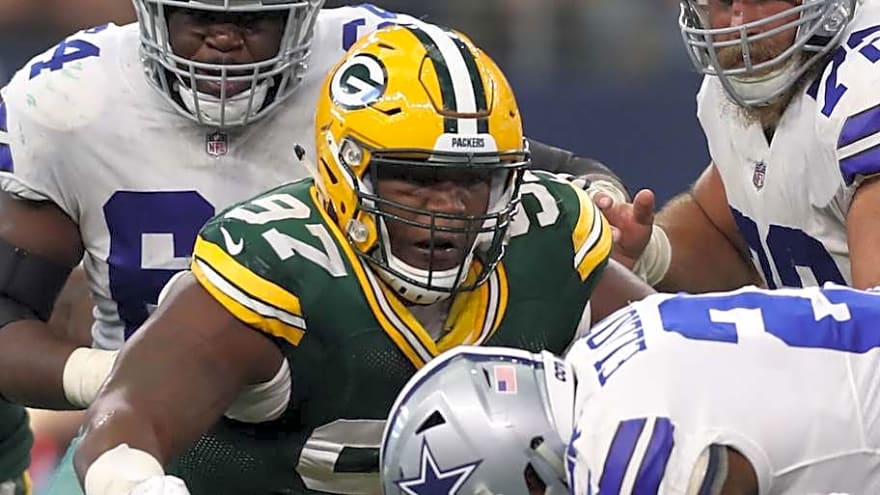
The Dead-Money Fallout of Micah Parson Trade
The Green Bay Packers acquired one of the NFL’s truly elite players when they acquired Micah Parsons from the Dallas Cowboys on Thursday. In return, Green Bay gave up two first-round draft picks and Kenny Clark. Clark signed a three-year, $64 million contract extension about 13 months ago. As part of it, he received a $17.5 million signing bonus. This offseason, he pocketed a $7.5 million roster bonus. Clark’s cap numbers were scheduled to be $20.365 million for 2025, $31.365 million for 2026 and $27.142 million for 2027. With Parsons getting a record-setting contract as part of the trade, the Packers had to get rid of a big contract to make it work. With Clark’s 30th birthday coming up and with him coming off a down season, the Packers probably were happy to part with Clark, even if it leaves a big hole – and creates a big question – in the middle of their defense. The fallout is the dead money that will remain on the salary cap. Even with Clark competing for the Cowboys, he will count $18.065 million on the Packers’ 2025 salary cap and $17.007 million on the 2026 cap. The dead money lingering on this year’s cap is a staggering $54.155 million, according to OverTheCap.com. Along with Clark’s $18.065 million, Jaire Alexander counts $17.043 million, Preston Smith counts $9.881 million and De’Vondre Campbell counts $7.971 million. Guarantees given to Mecole Hardman and Isaiah Simmons in free agency, quarterback Sean Clifford, and undrafted free agents Tyler Cooper, Jamon Johnson and Jonathan Baldwin add about $845,000 to the tally. This year, the league-wide salary cap is $279.2 million. Dead money consumes almost 20 percent of Green Bay’s cap. “I do think you’re always going to have a little bit of dead cap money if you’re doing things properly,” general manager Brian Gutekunst said at this year’s Scouting Combine. “You don’t want it but, at the same time, if you’re trying to maximize your ability to win each and every year, you’re going to probably have a little bit of that.” According to Spotrac, the Packers have the 10th-most dead-cap dollars this year. Their $54 million this year is chump change compared to the 49ers ($97.2 million), Saints ($91.0 million) and Eagles ($80.2 million). The Bears have a league-low $5.4 million in dead cap. The Saints already have $86.0 million in dead cap for 2026. Clark’s contract is the only dead money for Green Bay. Clark was Green Bay’s first-round pick in 2016. The three-time Pro Bowler ranks fourth in franchise history among defensive linemen in games played with 140. “We want to thank Kenny for the incredible impact he made in the locker room, on the field and in the community during his nine seasons in Green Bay,” Gutekunst said in the team’s announcement of the trade. “From the time he arrived in 2016, Kenny established himself as one of the top defensive tackles in the league and in the history of this franchise with his production, durability and leadership. He had the respect of everyone in the organization and epitomized what it meant to be a Green Bay Packer. Kenny will be greatly missed, and we wish him and his family nothing but the best in the future.” Counting Clark’s dead money and using Parsons’ fifth-year option contract of $24.007 million as a placeholder, the Packers have only $1.45 million of cap space, according to OTC. The first-year charge of Parsons’ new contract, once that becomes official, will be significantly less than the option figure and give the Packers the necessary breathing room.

Micah Parsons trade: Stephen A. Smith claims move by Jerry Jones will ‘taint whatever legacy he hoped to have’
Jerry Jones is receiving all kinds of criticism this morning for doing the deal yesterday that has sent Micah Parsons to the Green Bay Packers. It’s so much so that Stephen A. Smith thinks this will go on Jones’ resume. Smith reacted to Dallas trading Parsons to the Packers to start on ‘First Take’ on Friday. He discussed what a mess this was for the Cowboys, especially for Jones, as Stephen A. thinks he let this get personal. “This is what it is,” Smith said. “This is a disaster for Jerry Jones. This is a bad, bad situation, and I think this is something that’s going to taint whatever legacy he hoped to have because this is not a football decision. You can slice it any way you want to. “The reason why this is kind of something that’s going to taint Jerry Jones is because, in the end, we’re all looking at it and we know this is not purely a football decision. This was clearly not for football reasons. This was because you thought you had a handshake agreement with a young man, that was basically pleading with you to talk to my representation, and you ignored him.” That personal aspect of this then affected the business side of it, as Smith just sees this as a bad deal. For one, Dallas didn’t get enough in return for Parsons, as is almost a consensus opinion coming out of the trade, and simply could’ve gotten more had they made him more publicly available earlier. Then, for two, the Cowboys traded him to none other than the Packers, which only makes it that much worse considering the quality of franchise they’ve been in Green Bay. “Micah Parsons is a superstar-caliber player in the National Football League. You traded him for two late first-round picks. That’s late. The Green Bay Packers haven’t had a Top-10 pick since 2009. They’re usually in contention. This is going to be a low first-round pick. You made them younger. You made them better defensively, okay,” Smith said. “They’re within the NFC. You know what, if you’re going to trade Micah Parsons? Trade him out of the conference, or trade him to somebody like New Orleans or somebody like that. You don’t trade him to a Green Bay Packers team, who, by the way, was the last team to whip your ass in the playoffs. When you were last in the playoffs, the people that busted your tail was the Green Bay Packers.” “Two first-round picks and Kenny Clark, the defensive tackle, who had a down year last year, does not equate to a superstar, at age 26, that is Micah Parsons. It doesn’t equate to that,” Smith continued. “If you had made this deal in March, and opened the floodgates to everybody, then there’s no question that you would have had a better deal offered to you than the deal that you just agreed to.” “You could’ve done this in March, okay,” Smith said. “So, when you trade, and you get two first-round picks? You might’ve been able to get three, and they might’ve been able to be three better first-round picks had you done it earlier and opened the floodgates because competition might’ve compelled somebody else to be willing to give up more collateral, as opposed to it being right now.” The fact of the matter is, this deal is done, with Jones not budging on signing Parsons and instead sending him away to Green Bay. That’s something that he and the franchise will have to deal with moving forward, especially since it was seemingly done with football not being the main purpose of the trade. “All of these things that you take into consideration, for Jerry Jones to make this move? I mean, for me personally, it doesn’t bother me. This is going to give me more stuff to laugh about. But, on this particular morning, I don’t like to see Jerry put himself in this kind of position,” Smith said. “It looks very, very bad. This is not a good day for the Dallas Cowboys, at all. “It’s not that he’s gone. It’s what you got for him in return. But, most importantly, it’s why he’s gone because, if you’re Jerry Jones and the Dallas Cowboys, you knew what this situation was financially, cap-wise and beyond months ago, last year. You knew it then, but you wanted to keep him because you don’t let stars walk out the door if you’re Jerry Jones. But then, suddenly, you do. Why? It comes back to the why. He’s taking it personally…This was different. It wasn’t just football.”
Customize Your Newsletter
 +
+
Get the latest news and rumors, customized to your favorite sports and teams. Emailed daily. Always free!

